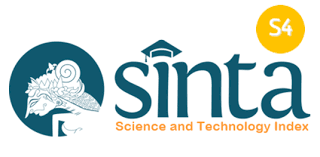PENERAPAN PENDEKATAN PEMECAHAN MASALAH TERBUKA (OPEN ENDED) DALAM MENINGKATKAN HASIL BELAJAR MATEMATIKA SISWA
DOI:
https://doi.org/10.36733/jsp.v10i1.697Keywords:
open ended problem solving, learning outcomesAbstract
Problem solving approach is defined as a procedure that is used as an effort to find a way out of difficulties and is an intellectual activity using all the knowledge, skills, and reasoning it has. Open problem solving involves problems that have more than one way of solving, to get one correct answer. The purpose of this study is to investigate the application of open problem solving approaches in improving student mathematics learning outcomes. This research is a type of classroom action research (CAR) with a design cycle. In this study, 24 research subjects were used, taken from VIIK grade students who did not meet the minimum completeness criteria (KKM). The object of the targeted research is student learning outcomes in mathematics. After the data is collected, it is then analyzed by quantitative descriptive analysis. The results of data analysis showed an average increase in mathematics learning outcomes from pre-cycle to cycle I by 5.39 points, pre-cycle to cycle II by 17.56 points, and cycle I to cycle II by 12.17 points. Based on the results of this data analysis, it can be concluded that the application of an open problem solving approach can improve student mathematics learning outcomes











